Spain's bear population is growing, thanks to crucial conservation work.

In September, TENT in partnership with The Beaver Trust, facilitated a press trip from Edinburgh to Inverness. Journalists and influencers travelled to various sites across Scotland to see beavers first hand, and gain insights from experts involved in beaver conservation. Here’s TENT’s Outreach Manager, Kate Heightman’s report on the trip.
Scotland is pioneering the recovery of beavers in Britain and is currently the sole country where beavers are free-living in the wild. Approval is still being sought for their release in Wales, and they can only be translocated into enclosures in England.
Beavers benefit nature and people in many ways. As ‘ecosystem engineers’ their activities can create wetland habitats, improve habitat structure and variety, and enhance biodiversity. They can also alleviate flooding, improve water quality, and bring socio-economic benefits.
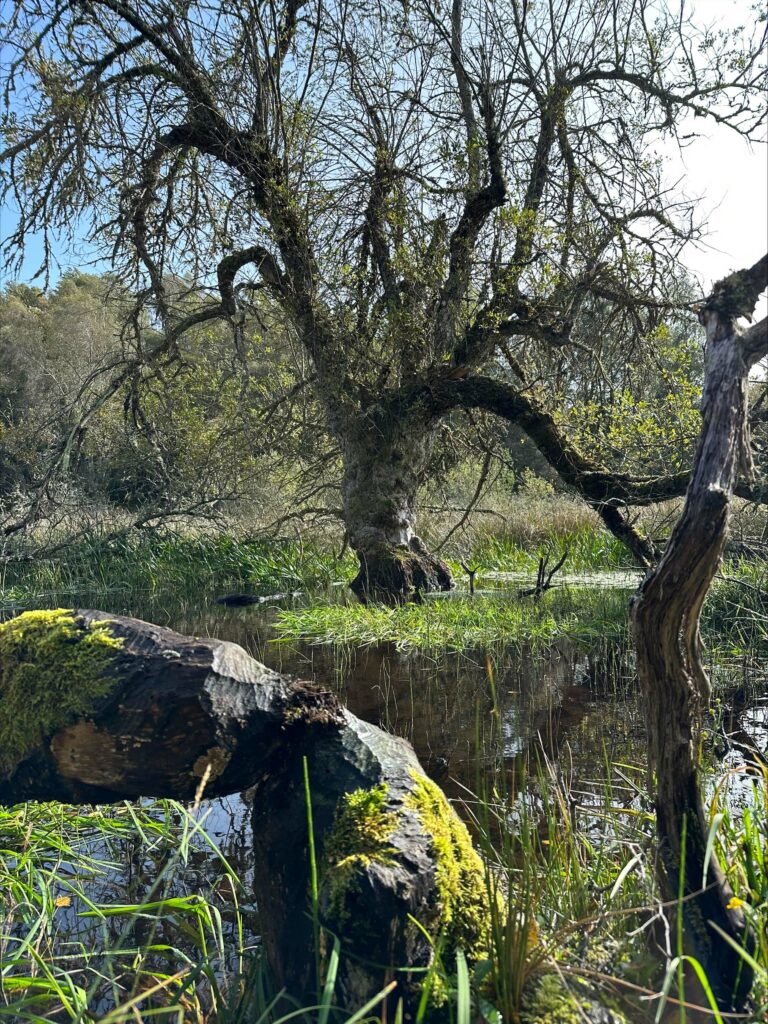
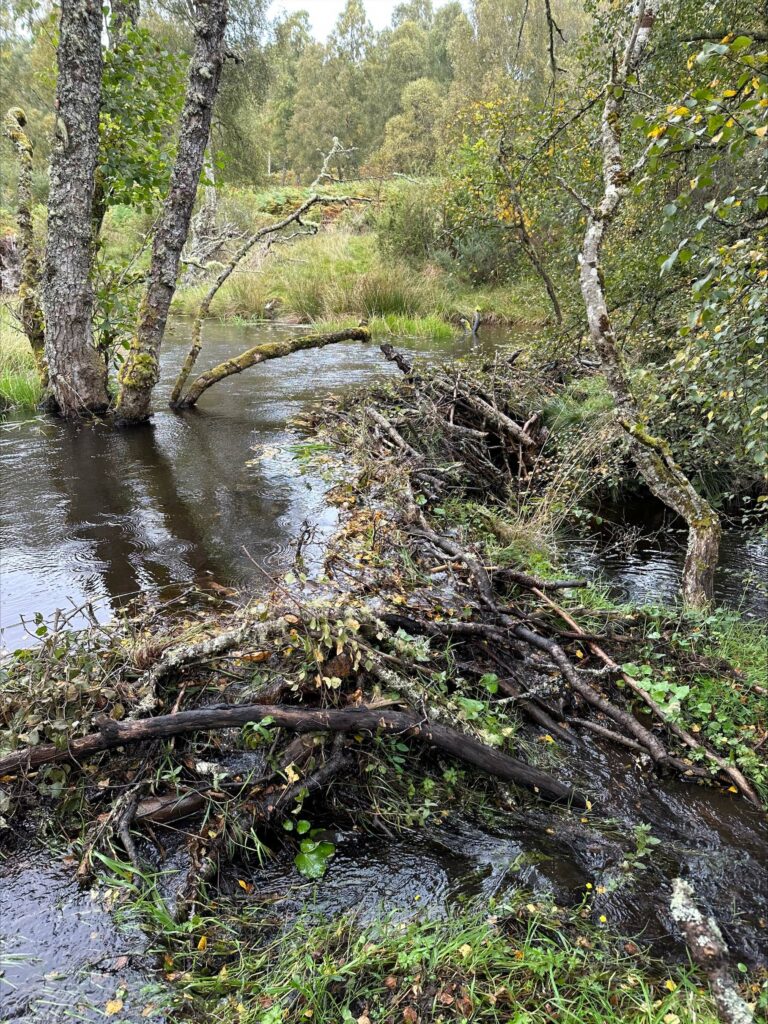
In May 2008, the Scottish Government gave permission to the Royal Zoological Society of Scotland and the Scottish Wildlife Trust for a scientifically monitored, trial reintroduction of European beavers to Knapdale Forest.
They then announced in November 2016 that beavers could remain in Scotland. This decision provided for the return of a species that was part of our wildlife for thousands of years before becoming extinct here around the 16th century.
Beavers finally gained European protected species status in Scotland on 1st May 2019, with the view from the government that the species should be allowed to expand its range naturally.
In some places and situations, the activities of beavers can be seen to have negative impacts on other interests such as farms, gardens, or other land. Sometimes this can simply be managed to prevent damage, such as by fencing vulnerable areas or protecting individual trees. Other actions, like the removal of more mature dams, manipulating dams or undertaking lethal control, can only be carried out under licence.
The Beaver Trust, along with Nature Scot, can provide free expert advice to help people experiencing problems, and where possible will provide measures to minimise damage through the beaver mitigation scheme, where beavers are trapped and translocated.
This is where the Beaver Trust’s vital impact on reintroduction begins, with Dr Roisin Campbell-Palmer leading the Restoration team. Beavers that have been implicated in land-use conflict are trapped and brought to Five Sisters Zoo for quarantining. Here we heard that they undergo a series of checks for parasites and diseases, and overall health. Once they have been through this process, they can be approved for translocation to sites where landowners are carrying out nature restoration and want to reintroduce beavers as part of this work. We were lucky enough to see a family of the endearing rodents at the facility, that have since been successfully released in Ealing.
Argaty Farm, where Red Kites reintroduced on the neighbouring farm first successfully bred in 1998, is now also home to red squirrels, and a family of beavers released in 2021. After a tour with landowner and beaver enthusiast, Tom Bowser, we settled quietly beside a pond where the beavers spend the day hidden in their lodge. To our delight, as dusk fell, the beavers emerged and swam around in the water trying to make out what who the strangers watching them were. Finally, we were treated to a tail splash, which the beavers use to spook or scare away potential threats and predators – we took the hint!
Beavers colonised an area around Mill Dam, above Dunkeld, about twenty years ago, so their activity here is very well established. They have created a complex network of canals, dams and ponds, to enable them to move around safely and forage for food. Their favourite fodder is willow, which they manage like coppice, cutting and bending stems to encourage fresh shoots. It’s easy to imagine that humans began to copy this activity to produce wood for weapons and building – an early example of biomimicry.
The wetland habitat created by the busy engineers supports many different invertebrates, amphibians and fish, that then provide food for birds and other mammals, improving biodiversity. The beavers’ efforts also store water, lessening the impact of droughts, and slowing flows, mitigating flooding.
In Kenmore, we met Duncan Pepper, a local fishing guide and beaver ambassador who is adamant that these aquatic animals can play a vital role in safeguarding the future of the Atlantic salmon in Scotland through their habitat management efforts. We set off down the river Tay on two rafts, for a beavers’ eye view of the riverbanks. We saw how human interventions to control the river can worsen the impact of the more extreme weather we are experiencing as a result of climate change. Less than two weeks later the Tay flooded very badly after a bout of intense rain, illustrating how vulnerable the catchment now is to such events.
This year saw the first ever Scottish wildcats returned to the wild in the UK, with the Royal Zoological Society of Scotland’s Saving Wildcats project releasing 19 of the so-called ‘Highland Tigers’ into an area of the Cairngorms National Park. The cats are being closely monitored to track their behaviour, and much effort is being put into reducing threats from feral cats and to educate the public, so that the cats have the best chance of survival. TENT is supporting the production of a new film to highlight the importance of reintroducing this native species.
At the same time, the Park Authority, in partnership with the Beaver Trust, has been conducting a public consultation on a proposed beaver translocation scheme in the Cairngorms Connect area – where public and private landowners collaborate to maximise the positive impact of their nature restoration work. We got the details from Dr Sally MacKenzie and Jonathan Willet who are waiting to hear whether a release licence will be granted, and it was truly inspirational to witness the passion and commitment of all involved.
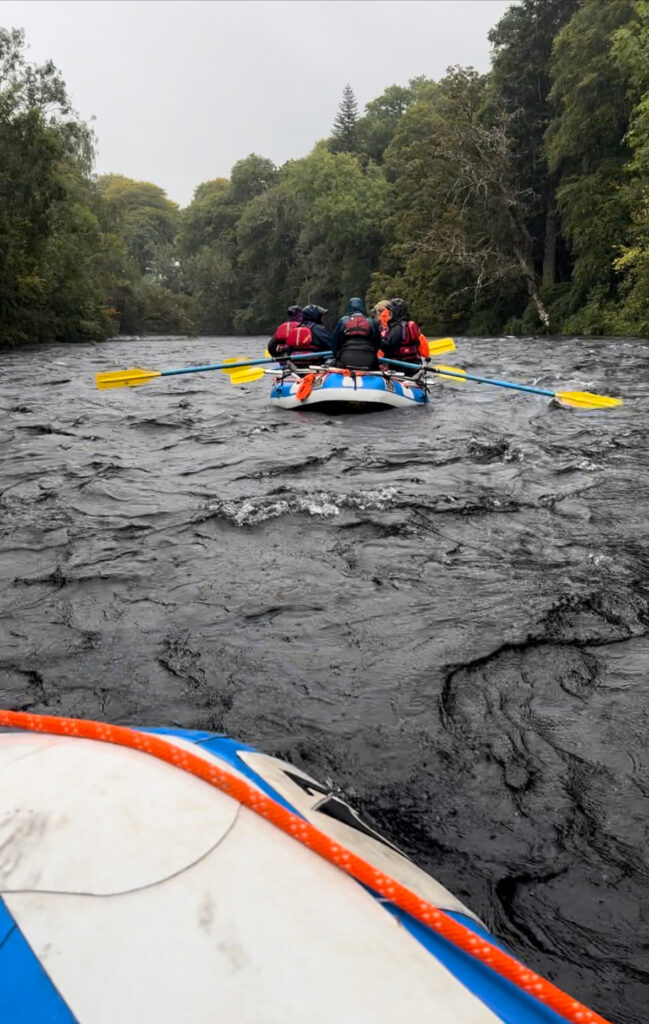
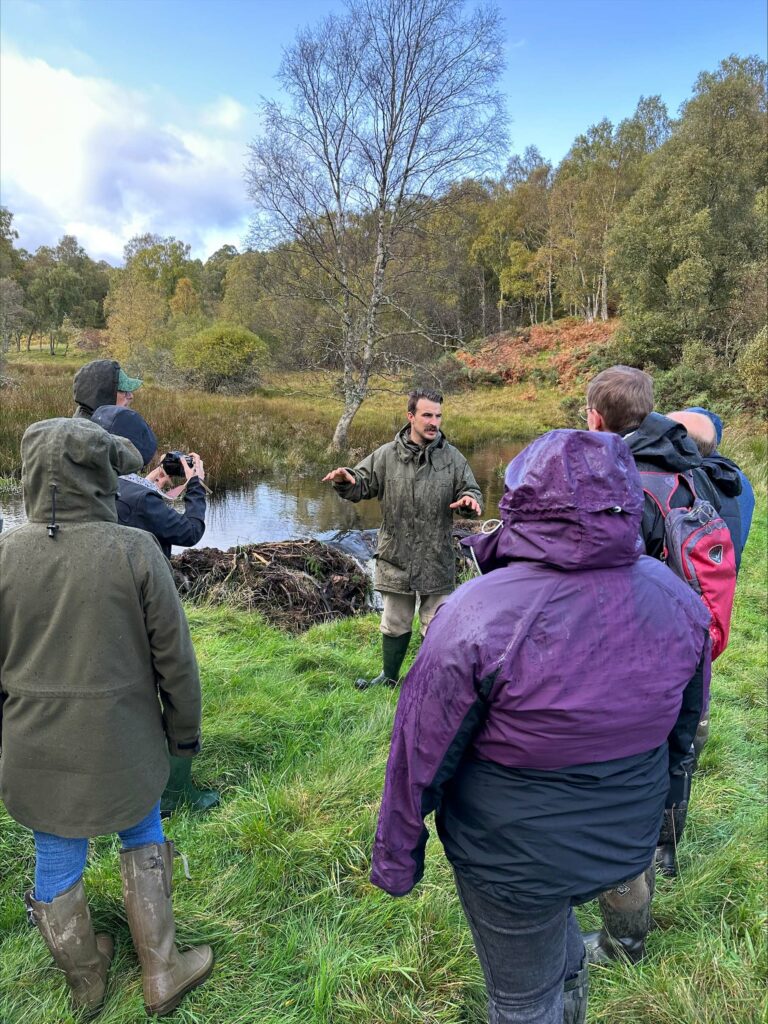
Our trip finally led us to South Clunes farm, where beavers have been living since 2008. Currently their area is fenced off from fields used for livestock and forage harvesting, so here the situation is more akin to that found in England, where beavers are not yet freely roaming the countryside. Fred Swift showed us around and we saw some very impressive dams and teeth marks! It was clear that this was a model that could be used by many farmers willing to allow nature to take control in the least productive areas of their holdings, and that this could lead to an increase in biodiversity that attracts people seeking a connection with wildlife too.
South Clunes has diversified to provide accommodation and the farm-based holidays are proving popular. They also welcome many students, or ‘loons’, who come to learn about sustainable and regenerative farming practices, as well as Fred’s ‘Farm Clusters’, where a collaborative approach to livestock management and food production is being explored. Beavers can play an important role in achieving these objectives, and positive stories from farmers who have them are essential to dispel myths among the skeptical.
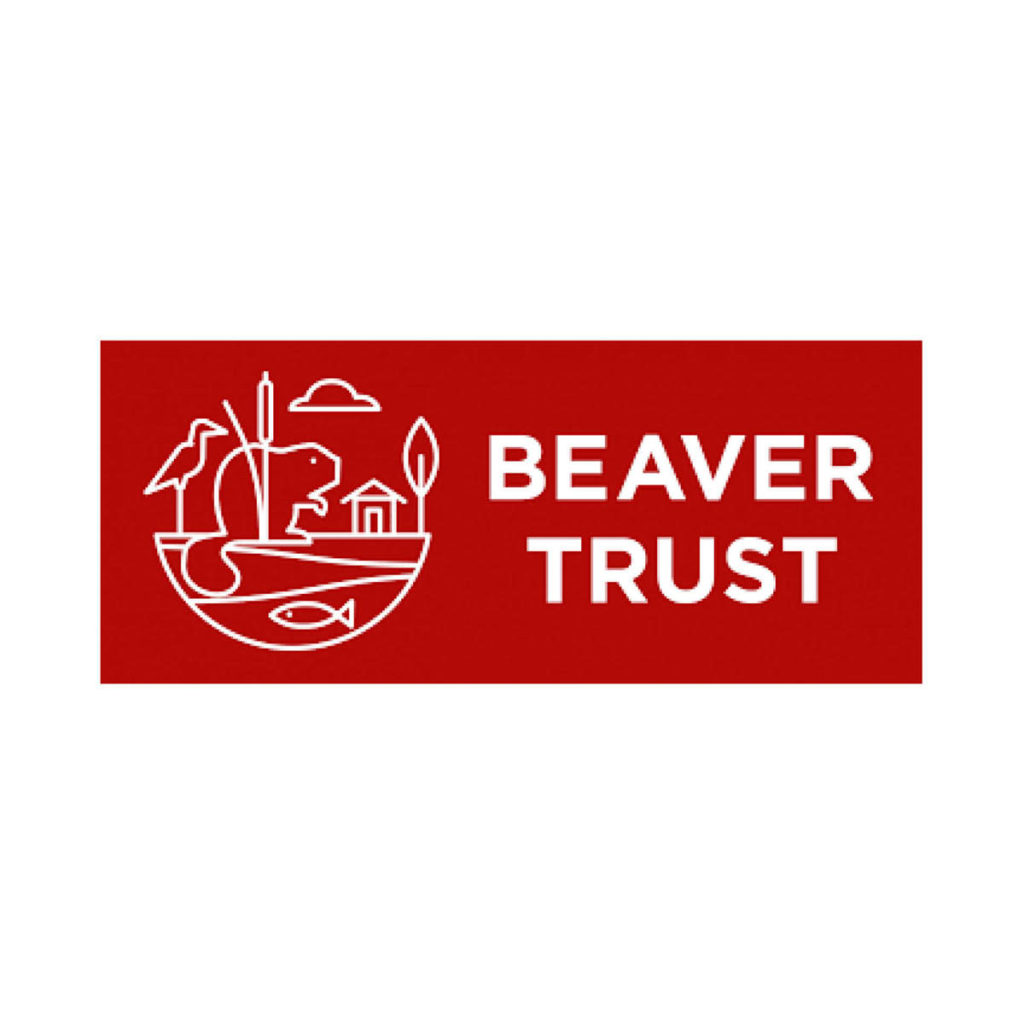
This trip was held in collaboration with Beaver Trust – an organisation TENT has been supporting for many years.
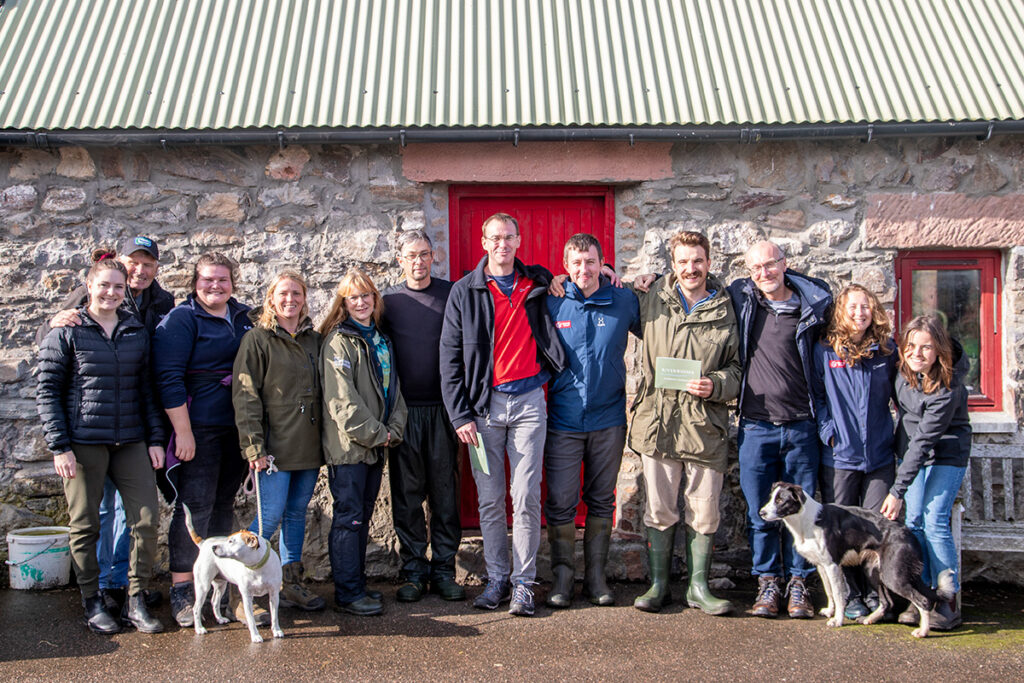
Michael La Page: New Scientist
Rob Edwards: The Ferret
Steve Deal: Scotland Magazine
Camilla Swift: Spectator
Annabel Lever: Nat Geo Kids
Dani Connor: Wildlife Filmmaker and YouTuber
Vedangi: Instagram influencer
Rob Howe: Nuffield Scholar, large animal veterinarian and prospective beaver ambassador.
Eva Bishop: Head of Communications, Beaver Trust
Elliot McCandless: Communications Manager, Beaver Trust
Emily Bowen: Communications Officer, Beaver Trust
Kate Heightman: Outreach Manager, The European Nature Trust
Peter Cairns: SCOTLAND: The Big Picture
Spain's bear population is growing, thanks to crucial conservation work.
Through the FIRNS initiative, TENT is working on a new blueprint for investment into nature recovery.
8 international journalists tell the story of Belizean conservation

